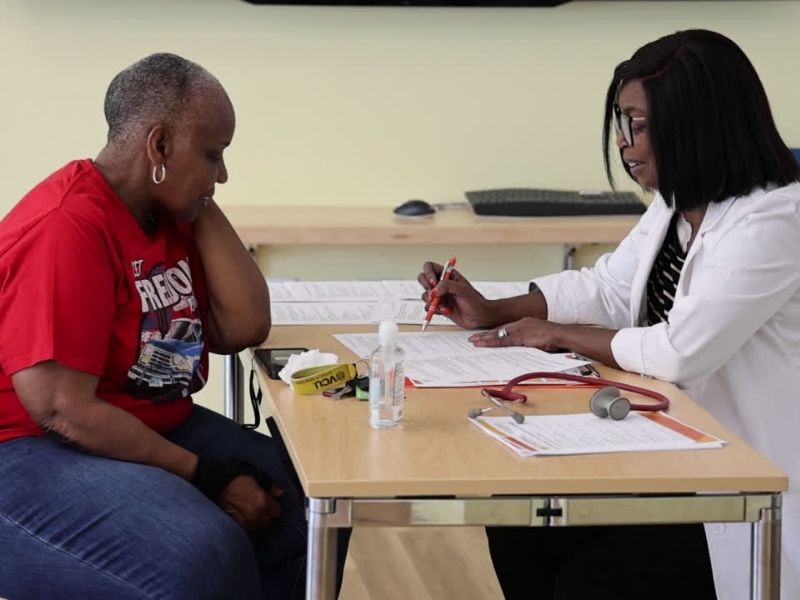Practice and Community Engagement
August 13, 2024

With a strong emphasis on faculty practice, community-engaged activities, and community-based research, the school demonstrated its commitment to improving health outcomes and providing excellent hands-on training opportunities for its students.
Faculty Practice
The Faculty Practice entered its third year with eight faculty members holding formal practice roles within the VCU Health System (VCU HS). Practice faculty were actively involved in various professional activities including grand round presentations, preceptor training seminars, and committee work within VCU HS. Notably, in the last year the Faculty Practice model at the school has been the focus of three publications, three grants, and twelve scholarly presentations including one at the American Association of Colleges of Nursing Practice Pre-Conference that highlighted the school's innovative approach to integrating clinical practice and education.
Community-Engaged Activities
Throughout the past year, undergraduate and graduate nursing students participated in community health nursing courses and gained valuable experience beyond the bedside by working with multiple agencies like local health districts and the Virginia Department of Public Health.
The Mobile Health and Wellness Program reached 609 community members with services over the course of the year, providing learning opportunities for 191 nursing, 100 pharmacy, five medical, two health administration students, and three health service students. Additionally, the Unite Us platform—a software to coordinate a care network, track outcomes, and identify service gaps and at-risk populations—was implemented at Mobile Health and Wellness Program sites, bringing a new level of interagency coordination and collaboration to the program.
Twelve faculty members are engaged in community-based board service, including working with LifeSpire Continuing Care Retirement Community, Better2Gether RVA, the Alzheimer’s State Commission, and the Sigma Philanthropy Committee, and the Virginia Department of Health Medical Reserve Corp.
Nursing research is very well-situated to address critical health equity issues and other current challenges in healthcare for a few reasons. Nurses have a holistic view of patients and communities, meaning that we acknowledge the critical connections between the physical, psychological, social, and spiritual aspects of human beings. Nurses are highly skilled at cultivating collaboration across disciplines, which is critically important for fostering sustainable change. Nurses have the ability to take both a broad view of healthcare challenges while also being pragmatic about the realities of daily life for patients and providers. Nurses have their fingers on the pulse of clinical care, healthcare system issues, and policy issues, all of which are necessary for addressing health disparities.
Patricia A. Kinser, Ph.D.
Interim Dean, VCU School of Nursing
Community-Engaged Initiatives
Several funded research projects and programs have been implemented through our community sites and partnerships:
- Supporting Aging and Wellness Needs of Older Adults
The goal of this project is to boost social connections for older adults. The research team on this initiative created a plan to educate students and faculty, use a survey to assess connections, identify those at risk of isolation, educate participants, and set goals to enhance their social interactions. - Prescription Produce Plan
Recognizing food insecurity's impact on diet quality among Black Americans in low-income urban areas, our clinicians observed many participants struggling with access to healthy food. In response, program leaders secured funding for weekly fresh produce deliveries, screen for food insecurity and create referral pathways for nutritious food. - Geriatric Workforce Enhancement Program
This program is leading a training program for nurses and nursing assistants employed by Sheltering Arms Rehabilitation Center. The training focuses on improving care for older community members in post-acute settings, ensuring they receive the best support during their recovery. - NEXUS program
Through this project, students study the MHWP model for pregnant and postpartum women. By listening to community needs, asking relevant research questions, and sharing findings, they explore community-engaged care models and their effectiveness and recommend ways to improve care and benefit the community.
Related News
- VCU nursing school hosts workshop to address community mental health access
- VCU researchers awarded $3M grant to study early signs of dementia
- Practice makes perfect
- Many hands make right work
- New study tackles chronic kidney disease in the East End community
- Asthma clinic innovates with video-based education to improve patient outcomes